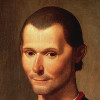“ When an aristocracy excludes the leaders of that profession from its ranks, it excites enemies which are the more formidable to its security as they are independent of the nobility by their industrious pursuits; and they feel themselves to be its equal in point of intelligence, although they enjoy less opulence and less power. ”
Alexis de Tocqueville, Democracy in America (1835). copy citation
| Author | Alexis de Tocqueville |
|---|---|
| Source | Democracy in America |
| Topic | intelligence nobility |
| Date | 1835 |
| Language | English |
| Reference | |
| Note | Translated by Henry Reeve |
| Weblink | http://www.gutenberg.org/files/815/815-h/815-h.htm |
Context
“I do not, then, assert that all the members of the legal profession are at all times the friends of order and the opponents of innovation, but merely that most of them usually are so. In a community in which lawyers are allowed to occupy, without opposition, that high station which naturally belongs to them, their general spirit will be eminently conservative and anti-democratic. When an aristocracy excludes the leaders of that profession from its ranks, it excites enemies which are the more formidable to its security as they are independent of the nobility by their industrious pursuits; and they feel themselves to be its equal in point of intelligence, although they enjoy less opulence and less power. But whenever an aristocracy consents to impart some of its privileges to these same individuals, the two classes coalesce very readily, and assume, as it were, the consistency of a single order of family interests.”
source


